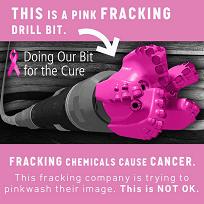Groups Condemn Federal Ruling on Cove Point LNG Export Facility
October 6, 2014
DCS Letter to Susan G. Komen re: Fracking
October 11, 2014Evidence from Pennsylvania
Elaine L. Hill, University of Rochester School of Medicine & Dentistry
August 2014
Abstract
This research exploits the introduction of shale gas wells in Pennsylvania in response to growing controversy around the drilling method of hydraulic fracturing. Using detailed location data on maternal address and GIS coordinates of gas wells, this study examines singleton births to mothers residing close to a shale gas well from 2003-2010 in Pennsylvania. The introduction of drilling increased low birth weight and decreased term birth weight on average among mothers living within 2.5 km of a well compared to mothers living within 2.5 km of a future well. Adverse effects were also detected using measures such as small for gestational age and APGAR scores, while no effects on gestation periods were found. These results are robust to other measures of infant health, many changes in specification and falsification tests. These results do not differ across water source (i.e. public piped water vs. ground well water) and suggest that the main mechanism is air pollution from localized economic activity. These findings suggest that shale gas development poses significant risks to human health and have policy implications for regulation of shale gas development.



